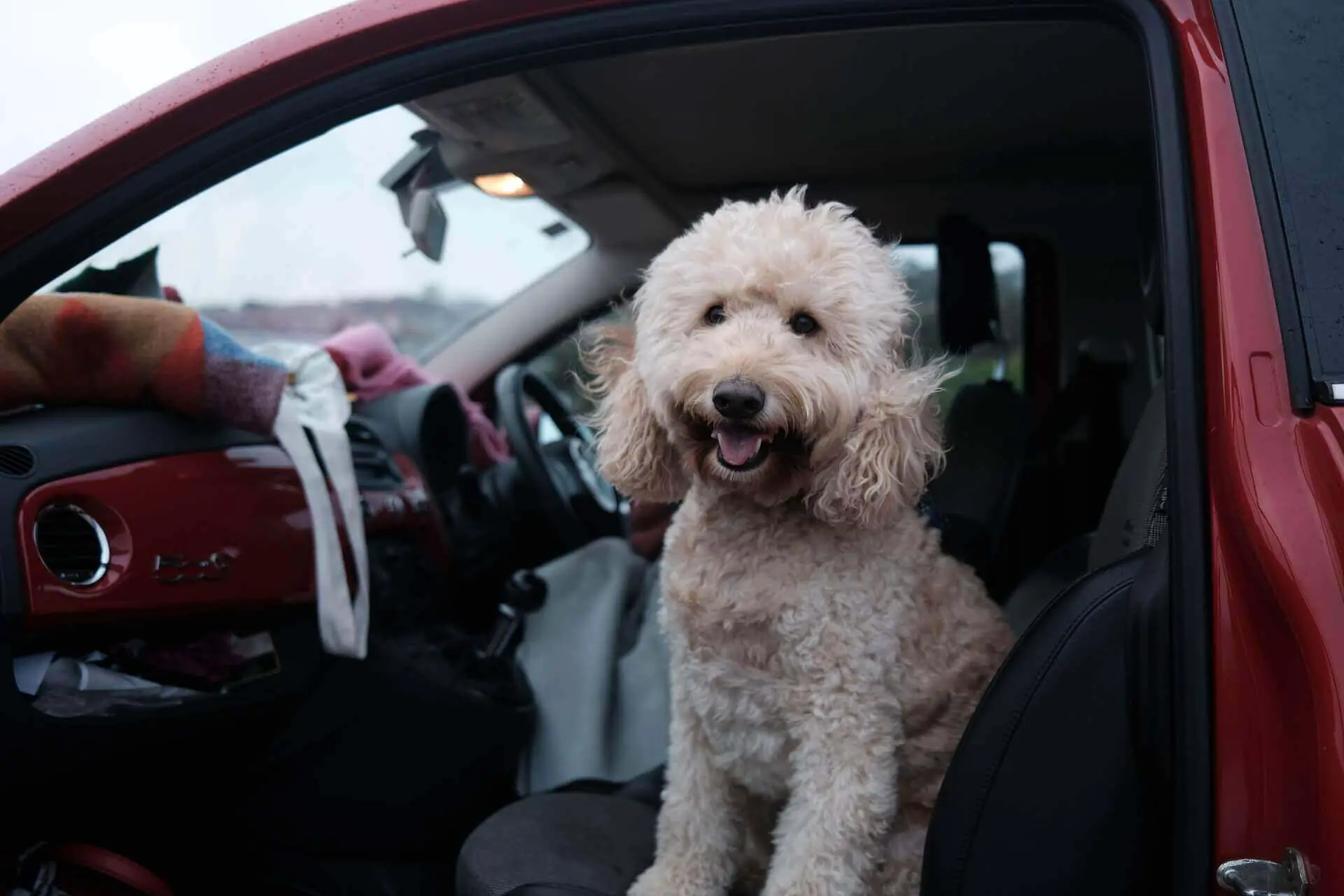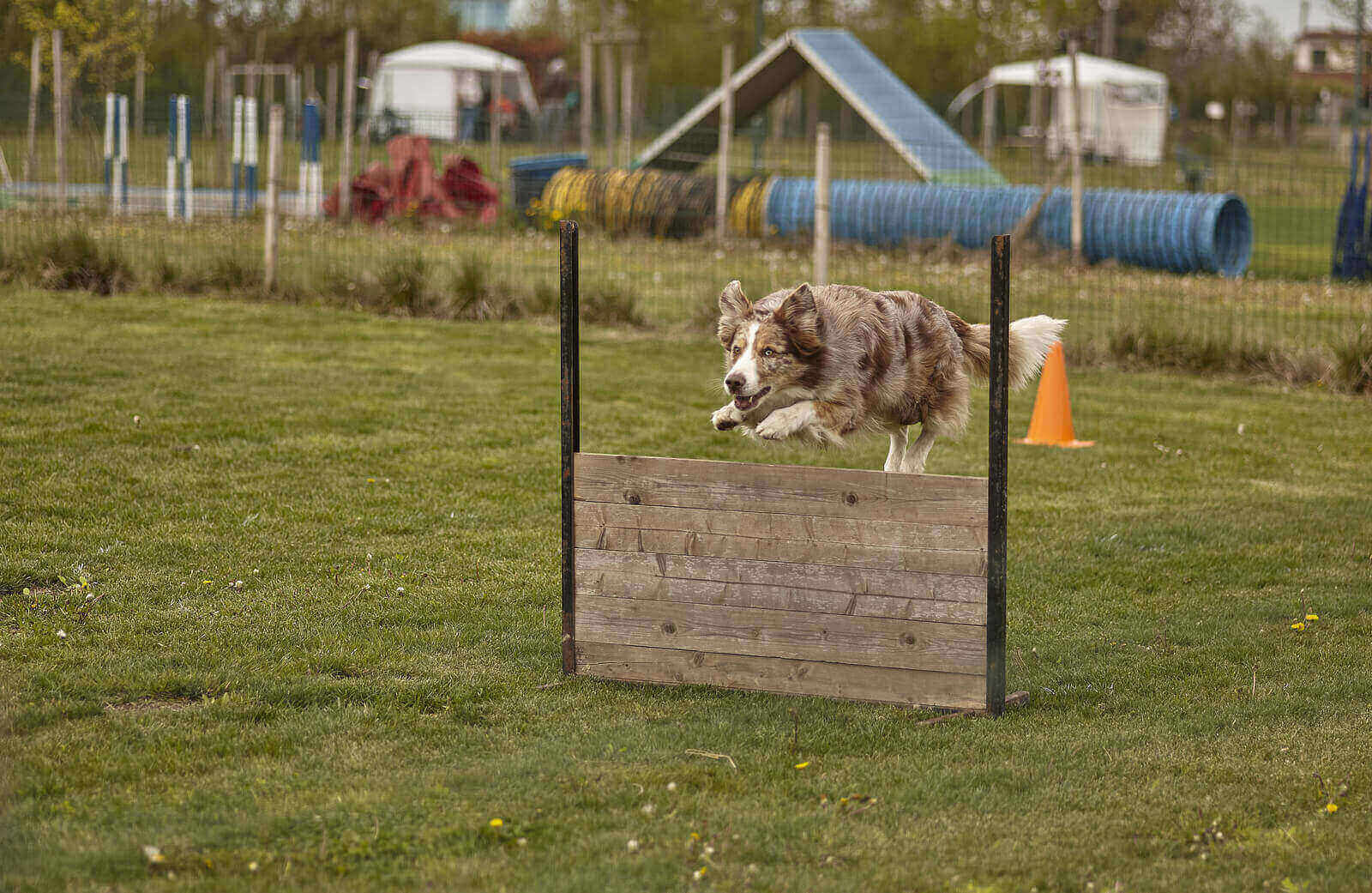Dogs pant often. It is a natural way of cooling down for them. However, is your dog breathing heavy without an apparent reason? It can be a symptom of various underlying health problems.
Dog Respiratory System
“Why is my dog breathing heavy?” We will explain the various reasons for abnormal breathing in dogs. Before that, let’s clarify some basic concepts. What is the respiratory system of dogs like? How does it respond to normal and abnormal breathing?
It is fundamental in understanding possible problems with dog breathing heavy. The respiratory system primarily consists of the windpipe or trachea. It has smooth muscles and fibrous tissue. It also consists of hyaline cartilage.

Its composite nature allows the trachea to convey air without getting crushed. At the same time, it offers the flexibility of expanding and contracting.
The trachea branches into bronchioles and alveoli. Alveoli are lung tissues that facilitate gaseous exchange in the lungs.
Is your brachycephalic dog breathing heavy while resting? Many owners take it as normal. However, what is normal for other dogs is slightly difficult for these breeds. Is the dog breathing heavy even without doing exercises? You should contact a vet immediately.
What Is Normal Breathing In Dogs?
Is your dog breathing heavy through nose? It can be one of the three normal patterns evaluated in a study on panting.
The study found that there are three distinct patterns of inhalation and exhalation.
These patterns are:
- Inhalation followed by exhalation through nose
- Inhalation by nose, followed by exhalation through nose and mouth
- Inhalation and exhalation by nose and mouth
The results of this study can help one understand the normal patterns of dog breathing heavy.
Dogs do not have the usual sweat glands distributed all over their bodies. They are only found in snouts and paw pads. This is the reason why panting is a vital body activity for them. The evaporation during rapid panting causes a cooling effect in their respiratory tract.
That said, you should always keep a watch on other associated symptoms of a dog breathing weird. These may indicate respiratory distress or pain responses.
What Should I Do If My Dog Has Breathing Problems?
“Why is my dog breathing heavy and fast?”
Breathing problems in dogs can be either fast or slow. Your dog has tachypnea if he is breathing very fast. On the other hand, if your pet is showing signs of labored breathing, the condition is dyspnoea. Both tachypnea and dyspnoea can be signs of distress.
Dogs can show two types of behaviors when suffering from a problem. They may either lean on the owner for help or refuse anyone to come near them.
If your dog breathing heavy is displaying any of the above actions, you should consult a vet. Most importantly, you should remember to keep your calm. Pets are highly sensitive to our reactions. Your anxiety may worsen the situation for your pet.
Common indicators of physical distress include dog breathing heavy and throwing up. It may not necessarily be a respiratory problem. Even having problems in the GI tract can cause dog breathing heavy.
Is your dog pregnant? A pregnant dog breathing heavy can be due to a condition called eclampsia. It happens due to low blood calcium levels.
Is your dog aggressive? Learn how to calm an heavily breathing aggressive dog
What Are The Signs Of Respiratory Distress In A Dog?
Check out if the dog sounds congested when breathing. It can be a sign of possible respiratory problem. Also, look for a blue-purple tinge in their gums and tongue. If this is the case, you should contact the vet immediately.
The vet would listen to their breathing to identify if there is fluid accumulation in the chest. Blue-purple discoloration of gums and tongue is caused by a low red blood cell count in the body. The vet will inspect the probable causes of this.
The reasons behind respiratory distress may include kennel cough and pneumonia. Other serious conditions may include lung tumors and laryngeal paralysis.
How Can I Help My Dog With Heavy Breathing?
Overheating can be one of the causes of dog breathing heavy. Never leave your dog in a closed car in the summer season. The internal temperature of the vehicle could rise very fast, causing a heatstroke.
While playing outdoors, you should make sure that the pet has access to a shaded area. Also, do not stretch the playtime to long hours. Dogs, in their excitement, may feel to recognize the stress. It is up to your discretion to make sure that your pet gets plenty of rest.
If you suspect heatstroke, bath your dog in cool water. Avoid ice-cold water as it can constrict blood vessels. You can also apply a cool compress to his chest. Most importantly, give your dog cool water to drink. You can also give him ice cubes to lick.
Obesity can be the reason behind dog breathing heavy while sleeping. If your pet is obese, you have to take care to reduce his weight. Don’t feed them a high-fat diet. You should also slightly decrease the amount per serving of his meal.
Applying these dog breathing problems home remedies should help. However, you should not exclusively rely on home remedies. Always consult a vet if anything seems abnormal.
Also note, fear may be one of the reasons why your dog breathing heavy. You need to identify the trigger that is causing the fear response. It can be something like the overwhelming sound of firecrackers.
How to calm a dog’s breathing? Always remember that you should not pet your submissive dog. This makes them think that being fearful is acceptable behavior. Allow your pet the time and encouragement to deal with fear triggers.
Do Dogs Breathe Heavy When In Pain?
Do remember, other kinds of internal pain or trauma can also cause dog breathing heavy. It does not necessarily have to be respiratory. On your part, take note of all abnormal symptoms and notify them to the doctor.
Dogs are very good at hiding pain. It is up to you to identify if there is a problem and take the right steps.

Look for other signs associated with dog breathing heavy. Does your pet have enlarged pupils? Is he showing signs of loss of appetite? Is he chewing or clawing at a certain region of his body? Look for all possible signs and help your dog when in trauma.
Internal and external injuries can also result in dog breathing heavy and shaking. Is your dog breathing heavy after surgery? It might be due to post-operative pain. Make sure that your pet gets enough rest to heal fast.
Do Dogs Breathe Heavier As They Get Older?
If you have a senior dog, shallow breathing may be a common issue. Dog breathing problems old age include anxiety. A lot of natural health issues show up in old dogs. These include decreased bladder retention and failing eyesight. It is unfortunate for a senior dog but all dogs go through this life phase before it comes to an end.
They try hard to cope with these physical changes. This may result in anxiety and shallow breathing. It can also be signs of other physical issues common with old age. You should keep a close watch on associated symptoms of old dog breathing heavy if it seems out of the order.
Speaking of anxiety and stress, your pet might have Cushing’s syndrome. It happens when there is an excess secretion of cortisol, the stress-relieving hormone. Heavy panting is one of the signs of this disease.
Instead of jumping to any conclusions, you should watch your pet closely. See if he has a pot-bellied appearance. He may have decreased bladder control. He will also display increased thirst.
What Does Labored Breathing Look Like In A Dog?
“Why is my dog breathing heavy?”
You should check the orientation of their mouths to identify signs of distress. If the mouth is only slightly open accompanied by heavy breathing, it can indicate a problem. Also, if the mouth is open too wide, like a grin, it can be a problem indicator.
Note the symptoms of dog breathing weird gasping. Your dog breathing heavy may want to lie down without any apparent reason. Notice their tummies. If they show heavy in and out movement, it can be due to respiratory distress.
Will Benadryl Help My Dog’s Breathing?
You should be cautious before giving any human-grade medicines to dogs. Never take this decision on a whim. Always contact the vet and ask for advice.
You should also remember that dog breathing heavily through nose can be due to poisoning. If your dog has the habit of eating inedible things, this might be a cause of concern.
Do you know some forms of medication can be the reason behind dog breathing heavy? It is a side-effect of the use of the synthetic steroid Prednisone. Common medicines to treat skin allergies and arthritis consist of this steroid.
Medication for lymphoma and Addison’s disease also consist of this synthetic steroid. If you think your dog is breathing heavily due to certain medications, ask the vet. She would suggest an alternative that will help calm your pet.
Is Panting A Sign Of Heart Failure In Dogs?
Panting might indicate a coming heart attack. But, you should also check for other signs of the ailment. Your pet will tire out faster, and have lesser stamina than before.
He may exhibit coughing while at rest and exhibit a persistent loss of appetite. There will be weight loss and the gums may appear bluish or purplish.
If your dog breathing heavy has had complaints of a heart murmur before, contact the vet.
Why Is My Dog Making Weird Breathing Noises?
Weird breathing noises are signs of respiratory distress.
Especially with brachycephalic breeds, respiratory distress is common. It tends to increase with old age. The anatomy of these animals has certain aspects that cause the issues.
Here is a brief chart on unique respiratory problems with these breeds.
| Anatomical Abnormality | Respiratory Problem |
| Stenotic nares (narrow openings in the nose) | Since their nostrils are narrow, they tend to breathe a lot by open mouths. This may be one of the reasons of dog breathing heavy and fast. |
| Macroglossa (enlarged tongue) | Contributes to the obstruction of the windpipe |
| Shorter airway | Problem with inhalation |
| Elongated soft palate | Obstruction of the respiratory passage |
Of course, other breeds can also have respiratory issues. The doctor should be able to tell you more about it following a diagnosis.
Why Is My Dog Suddenly Panting At Night?
There can be several reasons for dog breathing heavy at night. First of all, your dog might be having a dream that’s causing him to pant. It is normal canine behavior and there’s nothing to worry about it.
Another reason for dog breathing heavy in sleep may include heatstrokes. Underlying pain may also cause it. Either circumstance poses a serious reason for concern. Look for other associated behaviors to identify the problem.
For example, a dog in pain would try to chew or claw a certain region of his body. Such recurrent behaviors warrant an urgent trip to the vet.
Finally, dog breathing heavy at rest might be due to separation anxiety. It is a common issue in pups who are too attached to their owners. Older dogs may also have this problem.
Panting can be a response to the stress of acclimatization. It typically happens when you move to a new place and the dog finds the new surroundings unfamiliar.
If your dog is suddenly panting at night, then take them to a vet immediately if possible. These are things you want an expert to take a look at.

Final Verdict – Dog Breathing Heavy
Usually, panting is a normal process of cooling down in dogs. However, in certain situations, dog breathing heavy might indicate an underlying health issue.
You should be on the watch for different associated symptoms to identify the real reason. Depending on the circumstances, a trip to the vet may be necessary.

Welcome to Learn About Pet. My name is Rajkumar Ravichandran and I love all pets, travel, and amazing food. I write about my passion and personal experience caring for multiple pets in this blog! ❤️
Post Disclaimer
DISCLAIMER: THIS BLOG OR WEBSITE, "Learn About Pet", DOES NOT PROVIDE YOU WITH MEDICAL ADVICE AND IS NOT A SUBSTITUTE FOR MEDICAL ADVICE. ALWAYS GET IN TOUCH WITH YOUR PERSONAL VETERINARIAN AND USE INFORMATION HERE AS GENERAL ADVICE.
The information, including but not limited to, text, graphics, images and other material contained on this website are for informational purposes only. No material on this site is intended to be a substitute for professional veterinary advice, food recommendation, diagnosis, or treatment. Always seek the advice of your veterinarian or other qualified health care provider with any questions you may have regarding a medical condition or for pet food related questions.







